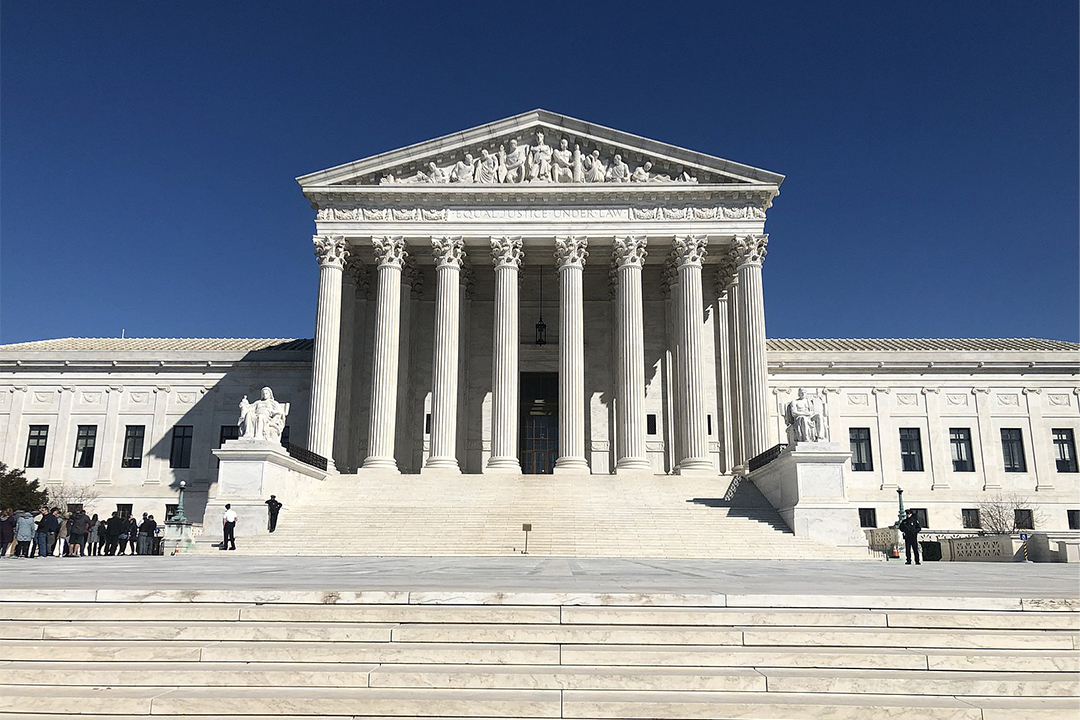The competition for college admissions in the United States increases every year. There have been numerous scandal reports of bribery schemes, falsified resumés, and cheating: all so a high school student can be admitted to a prestigious university.
The ultra-competitiveness of the admissions process has led many Asian applicants to express their disapproval of affirmative action, which attempts to present equal opportunities to higher education for demographics that are historically underrepresented.
On the surface, affirmative action may seem to disadvantage Asian applicants and favour other racialized minorities. For years, the Students for Fair Admissions (SFFA) have vocalized their concerns about affirmative action as a discriminatory policy and attempted to strike it down. On June 29, the Supreme Court ruled against Harvard and the University of North Carolina in a case that resulted in affirmative action becoming unconstitutional.
I believe this outlook on affirmative action to be fundamentally misguided. Affirmative action does not significantly disadvantage the Asian community’s ability to achieve success or to be admitted to a top university. By leading a court case to abolish affirmative action programs, Asian students will not set the precedent for a fair college admissions process. Instead, they will simply affirm racist sentiments and undermine the cultural solidarity between minority communities.
Affirmative action is not the problem, but if we as Asian applicants take it upon ourselves to condemn it, we will be the problem.
Misconstrued arguments against affirmative action
Among the arguments against affirmative action, the most prevalent is summarized by Calvin Yang, a staff writer at the Berkeley Political Review. As a member of the SFFA, Yang claims that “more-than-qualified applicants… often saw their places… given, instead, to less qualified applicants.” He characterizes Asian Americans such as himself as the “qualified” body in this argument.
Yang speaks as if Asian Americans, or the “qualified” applicants, are entitled to admission, and by choosing “less qualified” applicants, the schools are cheating the former group out of what is rightfully theirs.
In my view, this is simply the wrong perspective to have, because, as an applicant, students do not get to claim ownership over a spot simply because they have the highest possible SAT score.
The phrases “qualified” and “less qualified” indicate qualifications that can be quantitatively measured, when this is far from the truth. Harvard and other American universities pride themselves on a holistic review of their applicants’ qualifications: from test scores, to interview skills, to writing abilities. Affirmative action does not simply result in admitting the “highest ranked” students of each racial demographic. The use of race is simply one of many factors that contribute to the admission of an otherwise already qualified applicant. If you get into a school, you deserve to be there — even if you had a ‘leg up’ due to your race, first-generation status, or even lack of financial need.
SFFA members have also claimed that affirmative action programs do not produce favourable results, but instead lead to increased dropout rates because students admitted by affirmative action originate from less competitive academic backgrounds. These SFFA members frame their argument as if they are looking out for marginalized students, but this is laughable. Though it is true that dropout rates are higher for non-Asian racialized minorities, this is more indicative of systemic inequalities than the failure of affirmative action.
More than two thirds of students from low-income backgrounds are twice as likely to drop out than students from high-income backgrounds, and socioeconomic status has been tightly linked to race. If elite schools do not provide additional opportunities for students from disadvantaged backgrounds to attend their school simply because they require more support to succeed, then only the children from wealthy families would be admitted to these schools and afford to attend.
‘Us’ and ‘them’
As an Asian applicant who is planning to apply to American law schools this fall, I disagree with the court ruling that race-based admissions, no matter the intention, are all discriminatory and unconstitutional.
I believe the reason people in the Asian community are vehemently opposed to race-conscious policies is that they do not understand the history behind why affirmative action is necessary. It is important to ask ourselves why we as a community do not seem to require affirmative action to stake a place in higher education. It seems that every time this conversation comes up, the inevitable conclusion is that somehow Asians are simply more intelligent or more disciplined than other minorities, but these sentiments are both racist and false.
Although every racialized minority — including Asians — still experiences racism and discrimination. Racism in education goes back centuries before large-scale Asian immigration to North America even began.
Traditionally, Asian Americans have been largely enrolled in schools with large white populations and few disadvantaged racialized minorities. Our communities’ histories are not akin to North America’s history of systemic segregation and residential schools: policies that are in part responsible for the low post-secondary enrollment of Black Americans, Indigenous peoples, and Hispanic Americans to this day. Affirmative action does not benefit us because the education system has not historically mistreated Asians in a nearly comparable way.
The Asian community must understand that it doesn’t come down to ‘us’ and ‘them.’ Marginalized applicants will not steal our spots, and affirmative action does not have to hurt us to help others. We should always fight discrimination when it is present, but this is not discrimination against us. I hope that the future brings more opportunities for unity rather than division between Asian and other minoritized communities.
Ke Xu is a third-year student at Innis College studying global health, immunology, and history.



No comments to display.